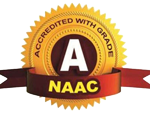Pillai College of Architecture is deeply committed to meeting the physical, mental, and emotional needs of all its students, faculty members, and support staff. Central to the ethos of MES and PiCA is the empowerment of women and the promotion of gender equity. At PiCA, conscious efforts are undertaken to foster a positive shift in attitudes, striving to achieve gender balance within the institutional framework and in all its outreach activities.
In recent years, there has been an observable surge in the number of female students pursuing an education in architecture. To facilitate this trend, the institute provides a hostel facility for girls, staffed around the clock by a dedicated caretaker, for students coming from distant locations. This provision is paired with the responsibility of cultivating an environment conducive to gender equality. This commitment extends to pedagogical inclusivity, with students being actively encouraged to prioritize gender-sensitive planning. They are thus taught to consider and incorporate gender perspectives in design strategies during the planning process.
This commitment to equity is manifested in several ways: 1
- A Women’s Development Cell operates within the institution, tasked with sensitizing the community and raising awareness about gender issues, thereby fostering a heightened sensitivity to women’s needs.
- A professional counsellor, Ms. Yvete Lee, is on hand to provide consultations for students, faculty, family members, or anyone concerned about a specific student.
- The institution also runs a mentor-mentee program, in which each student is assigned a mentor who provides guidance on both academic and non-academic matters.
- The institution offers common rooms for students, complete with a sick room for those who may need it. Boys’ common rooms are situated within the gymkhana area, and clean, separate washrooms for men and women are available on each floor.
- A Grievance Redressal Committee attends to student grievances regarding academic and administrative conduct.
- An Anti-Ragging Committee ensures a safe environment, sternly prohibiting any form of ragging, according to the regulations
- Posters advocating this policy are prominently displayed throughout the campus, and suggestion / complaint boxes are located in the office area.
- An Internal Complaints Committee exists specifically to address issues raised by female students, thus maintaining a secure and comfortable environment for them.
- The safety and security of women employees on campus are rigorously monitored through a staff of eight security personnel working 24/7 and surveillance via CCTV.
- Adequate lighting is provided throughout the campus, illuminating all crucial locations, classrooms and common facilities.
- Entry into the campus is strictly regulated, with only individuals possessing a college identity or visitor’s pass permitted.
- The institute also provides an insurance policy cover for all enrolled students.
PiCA enthusiastically commemorates many national and international days, events and festivals. These celebrations serve as a valuable opportunity to fortify the social and emotional bonds within the institute.
Best PracticesPiCA contributes to the development of its students with a focus on holistic learning through creating environmentally conscious and socially responsible individuals. By integrating environmental and social values into the education system, fostering practical experiences and engaging with the community, the institution contributes to building a more sustainable and empathetic society. With the practice of competency enhancement, the students are prepared for the complexities of the professional world which is explained through TWO best practices below.
Best Practice 1
Title of the Practice: Environmental and Social Values
Objective of the Practice:
- Creating environmental and social awareness.
- Conserving natural resources and promoting a clean and green environment.
- Educating people about the hazards to the environment.
- Enriching people with environmental sensitivity and social values.
- Formulating a baseline for future professionals to become socio-ecologically responsible individuals.
Context
The practice acknowledges the vital importance of a clean and sustainable environment for the well-being of humanity and all living beings. Human activities, such as pollution, deforestation, and climate change, have adverse effects on the environment and society. To address these challenges, the practice aims to instil environmental and social values among individuals.
The Practice:
Integration in Syllabus: The practice includes environmental and social topics in the university syllabus to ensure that every student is exposed to these critical issues. Practical Learning: Apart from theoretical knowledge, the practice emphasizes hands-on learning experiences, such as field trips to environmentally sensitive areas, nature walks, and waste management workshops. Awareness Campaigns: Regular awareness campaigns are organized to educate students and the localcommunity about environmental issues, sustainable practices, and social responsibilities. Green Initiatives: The institution actively implements green initiatives like waste reduction, recycling, energy conservation, and promoting the use of renewable resources. Community Engagement: Students are encouraged to participate in outreach programs, volunteer work, and community service to understand societal challenges and contribute positively. Competitions and Events: Environmental and social-themed competitions, seminars, and events are organized to engage students and promote their creativity and problem-solving abilities.
Evidence of Success
Increased Environmental Awareness: The assessments show a significant increase in environmental awareness among students and staff through experiential and participative learning. Sustainable Campus: The institution’s efforts lead to a noticeable reduction in waste generation, energy consumption, and carbon footprint. Positive Community Impact: Community feedback and participation in various initiatives reflect the positive impact of the practice on local society. Student Projects: Students’ projects and research papers on environmental and social issues gain recognition and awards at regional and national levels. It helps enhance competency through problem solving methodologies.
Problems Encountered and Resources Required:
Resistance to Change: Some students and staff may initially resist adopting sustainable practices and social responsibilities. Funding and Resources: Implementing environmental initiatives and conducting outreach programs may require additional funding and resources. Continuous Efforts: Sustaining the impact of the practice requires ongoing commitment and dedication from both students and the institution. Stakeholder Engagement: Involvement and cooperation from all stakeholders, including students, faculty, administration, and local communities, are essential.
Best Practice 2
Title of the Practice: Competency Enhancement
Objective of the Practice:
- To provide students with hands-on practical experiences that improve their research, analytical thinking, and technical skills.
- To foster a competitive spirit among students, encouraging them to go beyond the curriculum and acquire additional industry-relevant skills.
- To emphasize conscious and empathetic engagement with others’ narratives, enhancing students’ communication and presentation skills.
- To promote teamwork skills and socio-cultural tolerance through collaborative learning experiences.
Context
In today’s rapidly evolving professional world, academic excellence alone may not be sufficient to succeed. This practice recognizes the importance of equipping students with practical competencies, a competitive mindset, and a strong sense of empathy for effective communication and collaboration.
The Practice
Skill-Building Workshops: Focusing on skills required in terms of soft skills, life skills and employability; PiCA organizes week-long workshops facilitated by experts from various fields, providing hands-on practical experiences. These workshops cover diverse topics and skills beyond the standard curriculum. Industry Engagement: The institution collaborates with industry partners to expose students to real-world challenges and trends. This interaction helps students understand the industry’s expectations and requirements. Faculty Participation: In-house faculty members actively participate in workshops, setting an example for students and sharing their expertise and experiences. Special Talks and Presentations: PiCA arranges special talks and presentations that focus on effective communication, presentation skills, and understanding diverse perspectives.
Evidence of Success:
Increased Confidence and Competence: Students who have participated in the workshops demonstrate higher confidence levels in applying their acquired skills in practical situations. Holistic Learning: The hands-on approach to learning fosters a deeper understanding of concepts, promoting analytical thinking and research abilities. Industry Readiness: Graduates from PiCA exhibit greater readiness to adapt to professional environments, making them more employable and valued by employers. Positive Team Dynamics: The collaborative nature of the workshops enhances teamwork skills among students, preparing them for future group projects and team-based work.
Problems Encountered and Resources Required:
Coordinating with External Experts: Arranging schedules with external experts becomes challenging dueto their busy schedule and other commitments. Faculty Time Management: Faculty members need to allocate extra time for workshop planning and facilitation. Resource Allocation: Providing the necessary infrastructure, materials, and resources for practical workshops requires budgetary considerations.



